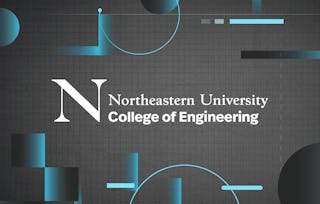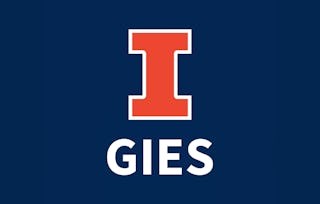The course focuses on teaching students how to successfully analyze a business process, research methods of improving a process, and adapt/integrate the improvement. methods into the business process in a prioritized and actionable manner. The goal of the course is to expose students to a universal set of business processes and provide them with a formal approach to improving and monitoring the health of those processes that they can apply in a current or future opportunity.

Operations and Process Management

Operations and Process Management
This course is part of Business Management Essentials Specialization

Instructor: Jeffrey Berk
14,214 already enrolled
Included with
192 reviews
Skills you'll gain
- Change Management
- Business Process Improvement
- Risk Management
- Process Improvement
- Operational Excellence
- Business Process
- Continuous Improvement Process
- Process Mapping
- Business Process Management
- Business Technologies
- Performance Measurement
- Quality Management
- Workflow Management
- Quality Improvement
- Pareto Chart
- Performance Improvement
- Process Analysis
- Project Management
- Return On Investment
- Process Management
- Skills section collapsed. Showing 8 of 20 skills.
Details to know

Add to your LinkedIn profile
33 assignments
See how employees at top companies are mastering in-demand skills

Build your subject-matter expertise
- Learn new concepts from industry experts
- Gain a foundational understanding of a subject or tool
- Develop job-relevant skills with hands-on projects
- Earn a shareable career certificate

There are 9 modules in this course
Welcome to Operations and Process Management! The course focuses on teaching students how to successfully analyze a business process, research methods of improving a process, and adapt/integrate the improvement methods into the business process in a prioritized and actionable manner. The goal of the course is to expose students to a universal set of business processes and provide them with a formal approach to improving and monitoring the health of those processes. Module 1 presents an overview of a six-step process improvement methodology. Lesson one will review the overall model and focus on defining the problem. Lesson two is a detailed discussion of the As Is and Should Be processes to help understand the current and desired states. Lesson three is understanding how to prioritize gaps, create business-ready action plans and use key performance indicators to measure and monitor changes.
What's included
10 videos5 readings4 assignments1 discussion prompt
This module will compare and contrast quality models. It will also discuss the use of qualitative and quantitative tools to analyze the As Is process. Lesson one will review Six Sigma, ISO and Baldridge models to understand quality, policies and procedures and process excellence frameworks. Lessons two and three will review reengineering tools like Affinity Diagrams, Pareto Charts, Cause and Effect Diagrams, and Control Charts. These tools are mutually exclusive and collectively exhaustive to help diagnose the current state of a process.
What's included
8 videos4 readings4 assignments
This module discusses that process mapping is not a flow chart but rather the inputs, activities and outputs that create a process. During this module we also cover the use of historic data to understand the As Is environment better and how to leverage performance measures to monitor changes once made. Lesson one is dedicated to process mapping and covers keys to effective interviewing as it is central to mapping a process. Lesson two reviews a model to collect and use historic data. The third lesson presents an approach to creating performance measures and effectively using them.
What's included
9 videos5 readings4 assignments
This module will review why it is important to balance operational efficiency with business risk. It will also discuss how operations management are a series of projects that must be managed. In Lesson one risk management is covered and reviews the adverse impacts risk can have on business processes. In the Lesson two project management practices are reviewed and attributes of the ideal project manager is revealed. Lesson three is a case from the finance and accounting function going through the full process methodology to see it work in action.
What's included
8 videos4 readings4 assignments
This module uncovers leading operational process audit techniques used by real-world practitioners. The first lesson is a review of multiple topics like customer orientation, business requirements, cost management and a focus on simplicity. The second lesson is a fun review of the prior lessons' concepts in the form of an engaging game. The third lesson is another detailed case study, this time from the marketing function, that will review the process methodology in detail via a real-world example.
What's included
8 videos4 readings4 assignments
This module is about action plans and change management. In the first lesson action plans are explored. These plans are not only mini project plans but a business case to turn an idea into an action. The second lesson covers change management and that is understanding the human side of improvements. It covers practices to prevent creating a toxic culture that can sometimes envelop operational changes. The third lesson is an exercise along with a detailed case using the HR function as a way to further illustrate class concepts in real-world scenarios.
What's included
9 videos4 readings4 assignments
This module is about quantifying the business impact and financial value of operational changes. The first lesson is defining value and presenting the ROI Process model to quantify value. The second lesson provides an in-depth case example of the ROI Process in action. It will go through mechanical computations to estimate, isolate and adjust numbers to create an ROI. The third lesson is exercises you will work on to ensure you fully understand how to use the ROI Process model.
What's included
9 videos4 readings4 assignments
This module begins with a discussion of operations trends including resiliency, agility and sustainability. As the module progresses to the second lesson more details are reviewed around emerging technologies and how these can be excellent enablers for operational and process changes. Technologies like AI, IoT, Blockchain, Digitization, and Robotics will be covered. The final module is a review of major teachable moments from our course recapping the model, change management, action plans, Risk, ROI, project management and other concepts.
What's included
9 videos4 readings4 assignments
This module contains the summative course assessment that has been designed to evaluate your understanding of the course material and assess your ability to apply the knowledge you have acquired throughout the course.
What's included
1 assignment
Earn a career certificate
Add this credential to your LinkedIn profile, resume, or CV. Share it on social media and in your performance review.
Build toward a degree
This course is part of the following degree program(s) offered by Illinois Tech. If you are admitted and enroll, your completed coursework may count toward your degree learning and your progress can transfer with you.¹
Instructor

Offered by
Explore more from Business Essentials
 Status: Free Trial
Status: Free TrialUniversity of Pennsylvania
 Status: Preview
Status: PreviewNortheastern University
 Status: Free Trial
Status: Free TrialUniversity of Illinois Urbana-Champaign
 Status: Free Trial
Status: Free Trial
Why people choose Coursera for their career

Felipe M.

Jennifer J.

Larry W.

Chaitanya A.
Learner reviews
- 5 stars
84.37%
- 4 stars
11.97%
- 3 stars
2.08%
- 2 stars
0%
- 1 star
1.56%
Showing 3 of 192
Reviewed on Aug 2, 2025
Excellent course, covered all the main areas thoroughly. Well structured, flows well across the piece. Enjoyable and recommended.
Reviewed on Aug 31, 2024
It was such a thorough course giving so much of insights on different angles of leading a business. A must for every operations manager to attend.
Reviewed on Nov 28, 2024
The instructor was fantastic and the course material was very useful!

Open new doors with Coursera Plus
Unlimited access to 10,000+ world-class courses, hands-on projects, and job-ready certificate programs - all included in your subscription
Advance your career with an online degree
Earn a degree from world-class universities - 100% online
Join over 3,400 global companies that choose Coursera for Business
Upskill your employees to excel in the digital economy
Frequently asked questions
To access the course materials, assignments and to earn a Certificate, you will need to purchase the Certificate experience when you enroll in a course. You can try a Free Trial instead, or apply for Financial Aid. The course may offer 'Full Course, No Certificate' instead. This option lets you see all course materials, submit required assessments, and get a final grade. This also means that you will not be able to purchase a Certificate experience.
When you enroll in the course, you get access to all of the courses in the Specialization, and you earn a certificate when you complete the work. Your electronic Certificate will be added to your Accomplishments page - from there, you can print your Certificate or add it to your LinkedIn profile.
Yes. In select learning programs, you can apply for financial aid or a scholarship if you can’t afford the enrollment fee. If fin aid or scholarship is available for your learning program selection, you’ll find a link to apply on the description page.
More questions
Financial aid available,

